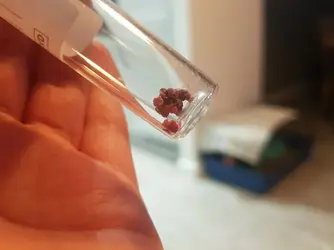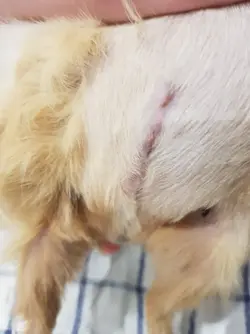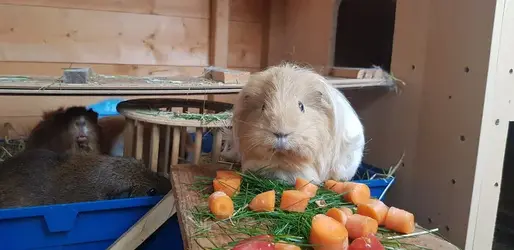GirlsofThrones
New Born Pup
Hi, I'm looking for some support/advice before I make a decision please.
My 2 year old piggie L'oreal went in for bladder stone surgery 2 weeks ago. After an initial struggle for a couple of days her appetite picked up and she was happily eating everything infront of her and pooping/weeing well. The vet told me post op she had the most calcified bladder sludge she had ever seen, and they weren't able to get everything out while trying to keep the amount of time under anaesthetic to a minimum. But they gave me the stones and sludge in a tube and my god it was a LOT. Vet thinks she must be genetically predisposed to this as shes so young with such extensive damage.
We went through her diet etc and no alarm bells there, the main take home message was, make sure she drinks LOTS. However, as much as she's eating, she has not drank a drop and it's 2 weeks on, she's got a bottle and a bowl of water, I've tried a little fruit juice in the water and currently have cucumber pieces in the water so she gets extra water when she picks them out. But I set up a camera and she does not drink. I've been syringing her water 4 times a day so cut that right back til she had none from me yesterday. I wake up this morning to find her still able to wee but now crying and bleeding while doing it. Is there anything else I can do for her? I'm going to ring the vets tomorrow if shes no better but I can't syringe her water for the rest of her life, and I'm actually going in for my own surgery next week so I won't be able to help her at all then. Any ideas/advice welcome please !
My 2 year old piggie L'oreal went in for bladder stone surgery 2 weeks ago. After an initial struggle for a couple of days her appetite picked up and she was happily eating everything infront of her and pooping/weeing well. The vet told me post op she had the most calcified bladder sludge she had ever seen, and they weren't able to get everything out while trying to keep the amount of time under anaesthetic to a minimum. But they gave me the stones and sludge in a tube and my god it was a LOT. Vet thinks she must be genetically predisposed to this as shes so young with such extensive damage.
We went through her diet etc and no alarm bells there, the main take home message was, make sure she drinks LOTS. However, as much as she's eating, she has not drank a drop and it's 2 weeks on, she's got a bottle and a bowl of water, I've tried a little fruit juice in the water and currently have cucumber pieces in the water so she gets extra water when she picks them out. But I set up a camera and she does not drink. I've been syringing her water 4 times a day so cut that right back til she had none from me yesterday. I wake up this morning to find her still able to wee but now crying and bleeding while doing it. Is there anything else I can do for her? I'm going to ring the vets tomorrow if shes no better but I can't syringe her water for the rest of her life, and I'm actually going in for my own surgery next week so I won't be able to help her at all then. Any ideas/advice welcome please !


